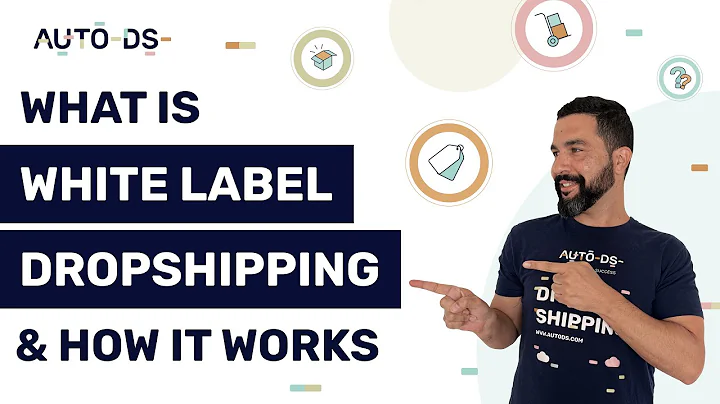Drop Shipping License Requirements in UAE: A Step-by-Step Guide
Table of Contents:
- Introduction
- What is a trade license?
- Trade license requirements in the UAE
3.1 Mainland trade license
3.2 Free zone trade license
- Trade license for drop shipping
4.1 Establishing a drop shipping business in the UAE
4.2 Establishing a drop shipping business in a different country
- Understanding international regulations
5.1 Following the regulations of the country where your business is registered
5.2 Selling to customers in different countries
- The importance of following local laws
- Setting up a global eCommerce website
- What if the country does not require a business license?
- Liability and legal implications
- Conclusion
Article: Understanding Trade License and Its Requirements for Drop Shipping
Drop shipping has become an increasingly popular business model, allowing entrepreneurs to sell products without the need for inventory management or shipping logistics. However, there is often confusion surrounding the requirements for a trade license when conducting drop shipping operations. In this article, we will explore the concept of a trade license and discuss its implications for drop shippers.
1. Introduction
When running a business, it is important to comply with the laws and regulations of the country where the business is registered. A trade license is an essential document that grants permission to carry out commercial activities legally. It is crucial to understand the requirements for obtaining a trade license and how it applies to the drop shipping business model.
2. What is a trade license?
A trade license is a legal document issued by the government that allows individuals or businesses to engage in commercial activities within a specific jurisdiction. It ensures that the business operates in compliance with the local laws and regulations related to taxation, licensing, and other operational aspects.
3. Trade license requirements in the UAE
If you are located in the United Arab Emirates (UAE) and wish to establish a business, you must adhere to the trade license requirements set by the UAE government. The specific requirements may vary depending on whether you choose to register your business in the mainland or a free zone.
3.1 Mainland trade license
If you decide to register your business in the mainland of the UAE, you will need to obtain a mainland trade license. This license allows you to conduct business activities within the UAE market and requires compliance with the regulations set by the UAE government.
3.2 Free zone trade license
Alternatively, you may choose to set up your business in one of the many free zones in the UAE. Free zones offer various benefits such as 100% foreign ownership, tax exemptions, and easy company setup procedures. However, each free zone has its own set of regulations regarding trade licenses, and it is essential to comply with the specific requirements of the chosen free zone.
4. Trade license for drop shipping
When it comes to drop shipping, the trade license requirements depend on several factors, including the location of your business and the countries you wish to sell to. Let's explore the different scenarios and understand the implications.
4.1 Establishing a drop shipping business in the UAE
If you are located in the UAE and want to establish a drop shipping business, you will need to acquire a trade license following the regulations of the UAE. Whether your business is registered in the mainland or a free zone, it is necessary to comply with the UAE laws to ensure a legal and compliant operation.
4.2 Establishing a drop shipping business in a different country
Suppose your business is registered in a different country, and you wish to sell products to customers in other jurisdictions. In that case, you need to follow the trade license requirements of the country where your business is registered. This means understanding and adhering to the specific regulations and obtaining the necessary licenses for conducting eCommerce operations.
5. Understanding international regulations
When operating a global eCommerce website, it is essential to understand and comply with international regulations. Here are a few key considerations:
5.1 Following the regulations of the country where your business is registered
Regardless of your physical location as the owner, it is crucial to follow the regulations of the country where your business is registered. This ensures that you are operating legally within that jurisdiction and fulfilling the necessary obligations.
5.2 Selling to customers in different countries
When selling to customers in different countries, it is important to be aware of and comply with the regulations of each respective country. This includes understanding tax requirements, import/export regulations, and any specific licensing or permits necessary to operate within those jurisdictions.
6. The importance of following local laws
It is important to emphasize the importance of following local laws and regulations when conducting any business activity. Adhering to the legal requirements not only ensures compliance but also protects your business from potential legal issues and penalties. Consulting with legal professionals or business consultants can provide valuable insights and guidance in navigating the legal landscape.
7. Setting up a global eCommerce website
When setting up a global eCommerce website, it is crucial to consider the legal and regulatory aspects. This includes choosing the right jurisdiction for registration, complying with local trade license requirements, and understanding and fulfilling any tax obligations or import/export regulations.
8. What if the country does not require a business license?
In some cases, certain countries may not require a specific trade license for eCommerce businesses. However, it is crucial to understand the legal implications and obligations associated with such a setup. The absence of a trade license does not mean exemption from other legal obligations, such as tax compliance, consumer protection laws, or intellectual property rights.
9. Liability and legal implications
Operating a business without the necessary licenses and compliance with local laws can have serious legal implications. It is essential to consider liability issues, potential penalties, and the protection of your business and customers' rights.
10. Conclusion
Obtaining a trade license is a crucial step when starting a drop shipping or any eCommerce business. It ensures legal compliance and allows for smooth operations within a specific jurisdiction. Whether you are in the UAE or conducting cross-border operations, understanding the trade license requirements and following local laws is essential for a successful and sustainable business.
Highlights:
- Understanding the requirements for a trade license when conducting drop shipping operations
- Different trade license requirements in the UAE for mainland and free zone businesses
- Establishing a drop shipping business in different countries and following respective regulations
- Importance of following local laws and regulations to ensure compliance and avoid legal issues
- Considerations when setting up a global eCommerce website and the legal obligations involved
- Potential legal implications and liabilities of operating a business without the necessary licenses
FAQs:
Q: Do I need a trade license for drop shipping?
A: Yes, obtaining a trade license is necessary for conducting drop shipping operations legally. The specific requirements may vary depending on the country and jurisdiction.
Q: What are the trade license requirements in the UAE?
A: In the UAE, trade license requirements depend on whether you choose to register your business in the mainland or a free zone. Each option has its own set of regulations that must be followed.
Q: What happens if I don't have a trade license for my drop shipping business?
A: Operating a drop shipping business without a trade license can lead to legal issues, penalties, and potential liabilities. It is important to comply with the local laws and obtain the necessary licenses to ensure a legal and compliant operation.
Q: Can I sell to customers in other countries without obtaining their trade licenses?
A: Selling to customers in different countries requires understanding and complying with the respective regulations of each jurisdiction. This may include obtaining the necessary licenses or permits to operate legally within those countries.
Q: Do I need a trade license if the country does not require one for eCommerce?
A: Even if a country does not require a specific trade license for eCommerce businesses, it is important to fulfill other legal obligations, such as tax compliance, consumer protection laws, and intellectual property rights. Consultation with legal professionals or business consultants is recommended.















